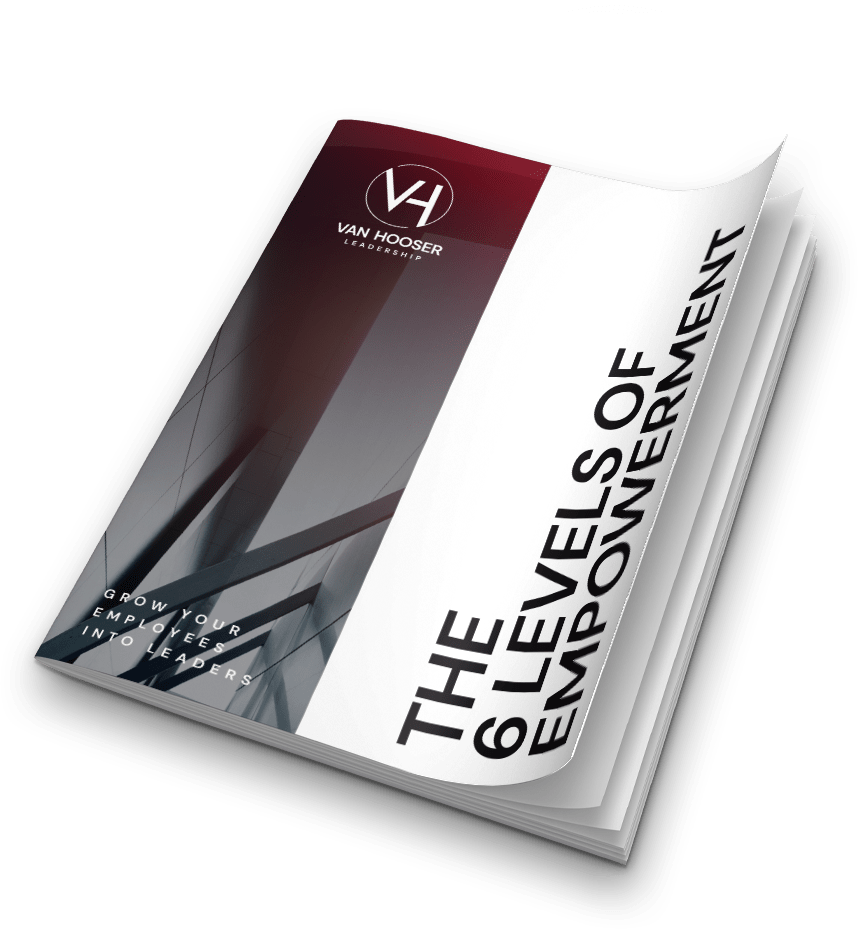Leaders within organizations, companies big and small crave better employee relations! It’s a huge recruiting tool. It leads to better performance and higher profits. Some charged with making this happen look for a magic bullet, some new, latest policy in the employee relations manual. But it takes much time and a tactful approach to build trusted, authentic, productive employee relations. Here’s a 4 question plan that can start any manager, any organization down the right path to better employee relations. But only the persistent will make it happen? Will that be you?
A 4 Question Plan for Better Employee Relations
I remember my first real job with supervisory responsibilities — HR Supervisor with a major heavy equipment manufacturer. We had a workforce of 400+ people on three shifts. And employee relations was a key part of my responsibility.
I was green and inexperienced. Every newly assigned task represented a new challenge.
But, I was also enthusiastic! I worked hard and I applied myself.
Each day I pored over every policy manual, report, and spreadsheet I could get my hands on. I was convinced that the key to my eventual leadership success was buried deep within one of them.
My job? Just keep digging until I found that key. I was at my desk early and I stayed there late. Ignoring breaks and the opportunity for casual conversations, I opted for a few more minutes of “desk time.”
I was there at my desk, working hard to be a leader, when my boss stopped by to discuss my progress.
Better Employee Relations Aren’t Found in the Policy Manual
“Phil,” he began earnestly. “I’m pleased with your overall effort. You’re making good progress learning the technical part of your job.”
I was initially encouraged — until the other shoe dropped.
“But, Phil, unfortunately, I see no real evidence that you’re doing the most important part of your job — the employee relations part. That requires spending time with and getting to know your employees.”
That day my boss challenged me to make a commitment to spend at least 30 minutes each day — EVERY DAY — in direct contact with my people. Walking, talking, connecting with our employees on their turf — on their level.
If You Have Reservations about Employee Relations…
I’m an outgoing sort of guy. But I must admit I had some serious reservations about this assigned challenge. Thoughts like these flooded my mind:
“What in the world am I going to talk about with these people? Some of them on second or third shift have never even seen me!”
“What would I say to break the ice? I’m sure they will be suspicious of my motives — so why would they trust ME to share anything of value?”
But if I intended to not only keep my job, but to be successful at the employee relations part of it, I had to make a plan.
So I formulated four opening questions I would use to start building a bridge of trust with our people.
Employee Relations is Nerve Wracking & Awkward, but…
Before I get to the 4 questions, I have to admit a few things.
- Was I nervous the first time I tried this? YOU BET I WAS! But to sit in my office, hiding behind — placing my hope in — some technical employee relations policy manual would not be deemed an “HR best practice.”
- Was it awkward the first few times? Unquestionably, YES. I found though, showing a sincere, authentic interest in our people soon led to a growing trust — and that’s a solid foundation for stronger relationships with employees.
- Did every employee respond positively and openly on Day One? Of course not. There’s no magic bullet for building strong employee relations. As my boss said, “…that requires spending time with and getting to know your employees.” And to connect with a workforce of 400+ meant a huge commitment of time.
- Did my nerves, the initial awkwardness and the seemingly slow progress discourage me? Honestly, on occasion, they did. But all relationships take time — and employee relationships are no different. So I counted every positive response — no matter how small — a win!
A 4 Question Plan for Better Employee Relations
So here are the 4 questions I used to foster better relationships with our people. I believe you can use them to build better employee relations too!
A word of caution for the eager one ready to head out and start talking with employees…
Do not walk up to your first employee and interview or interrogate them with these questions. If you launch into a four question “survey” with an employee, you risk creating more suspicion and distrust. The process of building trusted, authentic, productive employee relations takes much time and a tactful approach.
In your initial employee conversations, you may only get Question 1 asked. Be patient. Go slow. Don’t push. Remember, you have to earn the right to be trusted — and that takes time.
1. What is your name?
That seems almost too basic. But believe me, employees won’t trust a supervisor, a manager, a company leader who doesn’t take time to even ask their name.
You may be thinking, “I hired and supervise this employee —of course I know their name.” Great job!
But what about those employees who contribute to the success of your department or organization? The ones you didn’t hire or you don’t directly supervise? Wouldn’t it be helpful to your success and to the organization if you forged good relationships with any employee who helps your people?
While employees may be obligated to give “an answer” when asked for their input or opinions, beware they will be hesitant to give “an honest answer” to someone who hasn’t asked their name.
Conversely, be sure you introduce yourself. Don’t presume employees know you because of your position. Humility and common courtesy are attractive assets when you want better employee relationships.
2. Tell me about your specific duties or responsibilities in the organization.
Again, if you directly supervise this employee, you may already know this. However, sometimes it’s easy for a leader or manager to lose touch with the day-to-day duties of their employees. For example, an operations manager may oversee assembly but not understand the unique duties of each assembler.
Showing a sincere interest in an employee’s role in the organization and understanding their contributions are vital, solid steps toward better employee relations.
3. What is the biggest challenge you face in your job?
Leaders and managers — if you want to be trusted by your people — your people need to know you care about their problems and challenges. Why? You are their advocate and you hold the keys to the resources they need be successful.
On the other hand, your employees know they hold vital information you need, too! Information such as firsthand observations, operational intelligence, expert insights, and best practices.
If you don’t build a relationship with them, then at a moment’s notice, your people can lockdown the critical flow of company information and throw away the key.
Investing time in employee relations helps both managers and those they lead get on the same team.
4. What do you like best about your work?
I’ve held this employee relations and motivation premise for years:
All employee behavior is directed toward satisfying some need.
Smart leaders and managers figure out what their employees like, what aspirational needs they have, and ultimately, what motivates them.
Then, the smartest leaders and managers set about helping their employees get what they want in the context of their work.
When that happens, employee job satisfaction climbs! Employee relations and retention improve! Teamwork and trust are elevated. And companies and organizations experience better performance! Who doesn’t want that?
Your Employee Relations Challenge
My boss challenged me to spend time with our employees — to make getting to know them a priority. Today I’m challenging you to do the same.
Make getting to know your employees a priority. Commit some time every day to your people. Work to get to know your employees — their likes, their dislikes; their strengths and weaknesses; their contributions and concerns.
Don’t you dare allow yourself to think of that time as wasted. Instead, recognize it for what it really is — an investment in strong employee relations and an investment in yourself.
Trust me — I know from experience, it will be time well spent!
#betteremployeerelations #strongemployeerelations #youwontfindthisintheemployeemanual #timewellspent










